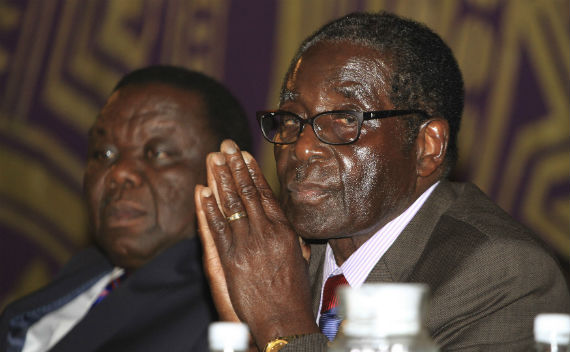Violence In Zimbabwe
More on:

The unity government of President Robert Mugabe and Prime Minister Morgan Tsvangirai appears to be falling apart. The president and the premier jointly called for an end of violence by their respective political parties, ZANU-PF for the former, the Movement for Democratic Change (MDC) for the latter. But their appeal seems to have little impact, especially on ZANU-PF. Tsvangirai has said that escalating, violent attacks by ZANU-PF militants despite Mugabe’s pleas shows that the president may have lost control, that the "state security agents have instituted a coup over the civilian authority."
South Africa president Zuma’s "facilitation team," which is seeking political stability in Zimbabwe, is at present in the country. In a report to it, the MDC characterized the unity government as "dysfunctional" and claimed that ZANU-PF has set up structures of government parallel to the legal one, and funds itself through the sale of state assets, especially diamonds, without reference to the treasury.
Observers of Zimbabwe have long debated the balance between Mugabe and the ZANU-PF dominated security services: who is the dog and who is the tail? Now, it looks to me like the balance has indeed shifted to the security services from the octogenarian Mugabe, as Tsvangirai is charging. The president appears unable to control the use of violence by ZANU-PF operatives, and ZANU-PF ministers boycott cabinet meetings of the unity government when they are chaired by Tsvangirai. MDC allegations that ZANU-PF operatives are involved in extra-legal diamond sales to fund their activities are also credible. However, it is not clear that ZANU-PF activities go so far as to constitute a "parallel government" as Tsvangirai claims.
Nevertheless, the country politically appears to be more and more chaotic, even as the debate intensifies over when national elections will be held. Mugabe wants them soon; Tsvangirai is arguing that there is too much violence at present for credible polls, and his party’s rallies are regularly disrupted by ZANU-PF "youth."
More on:
 Online Store
Online Store
